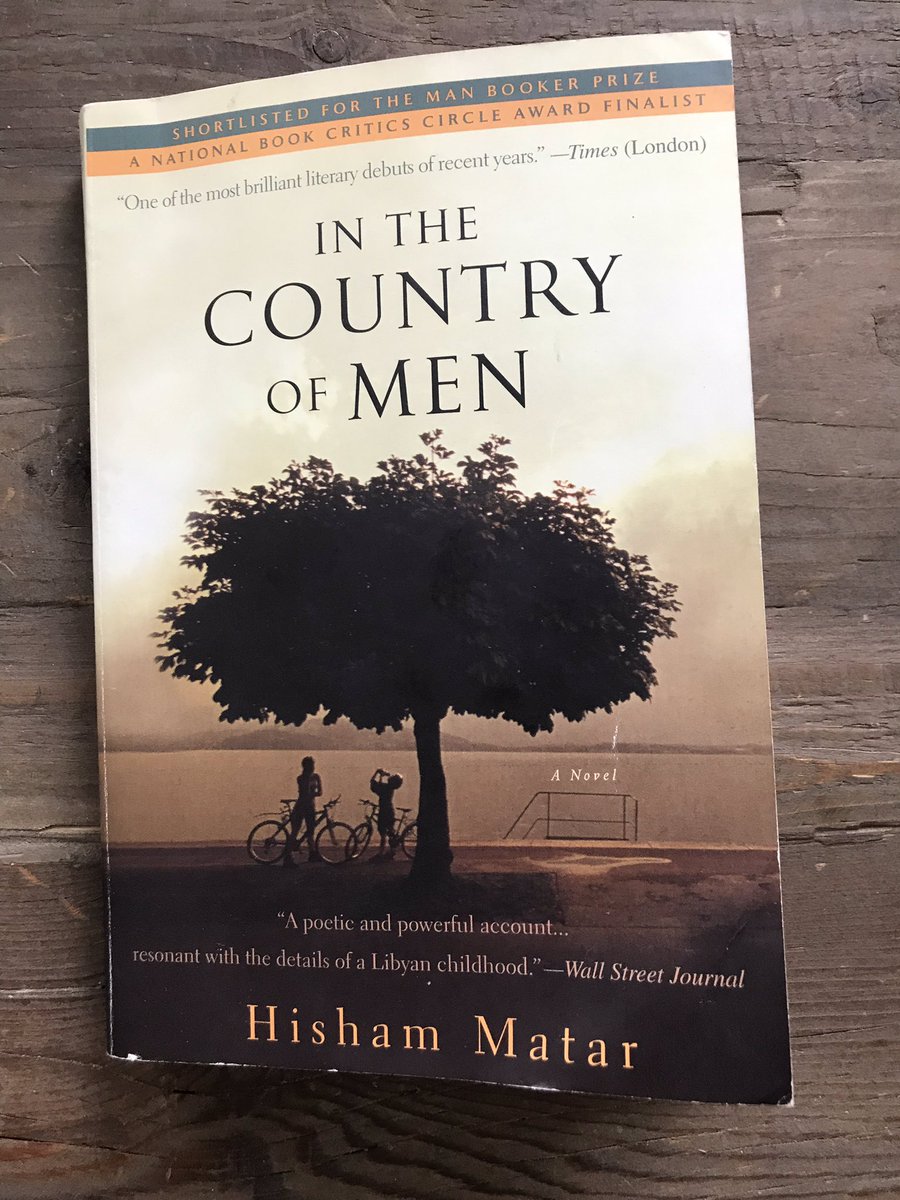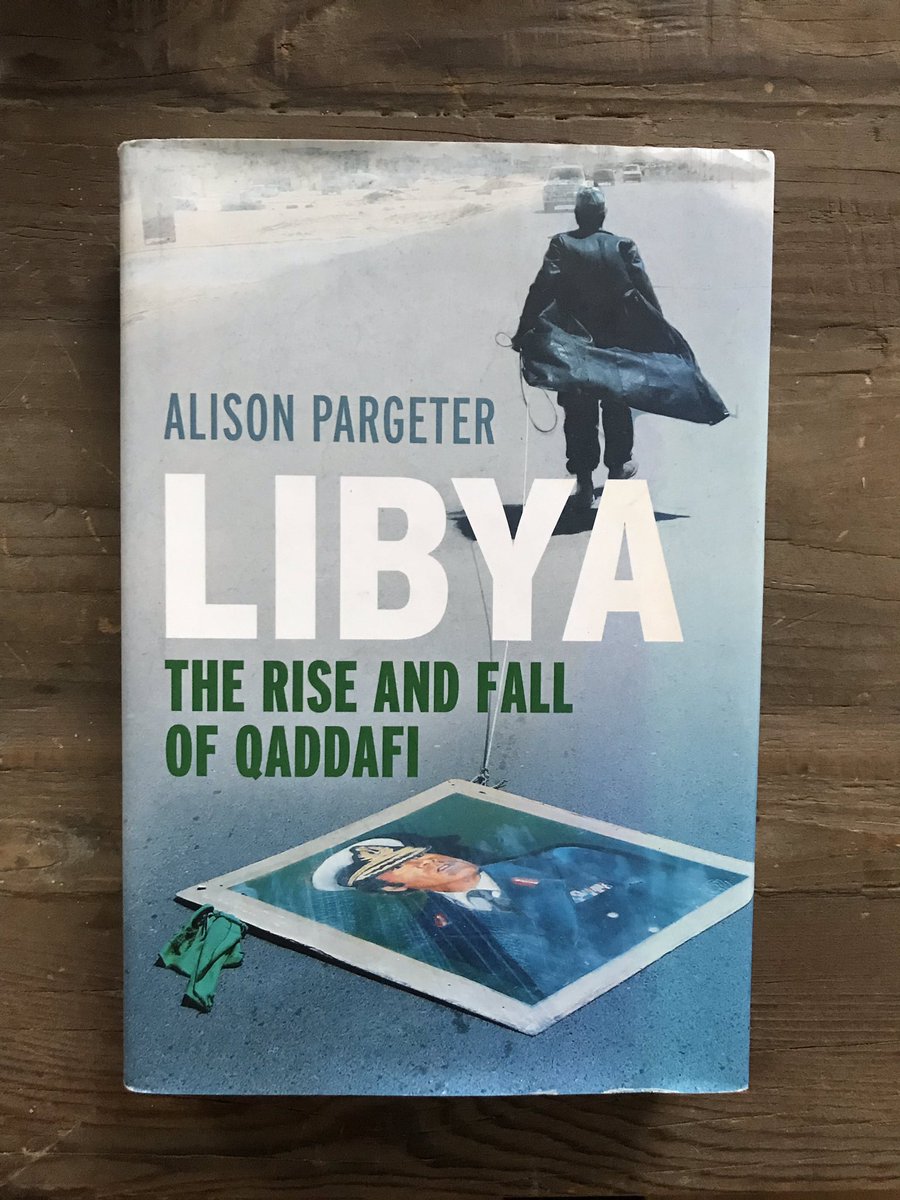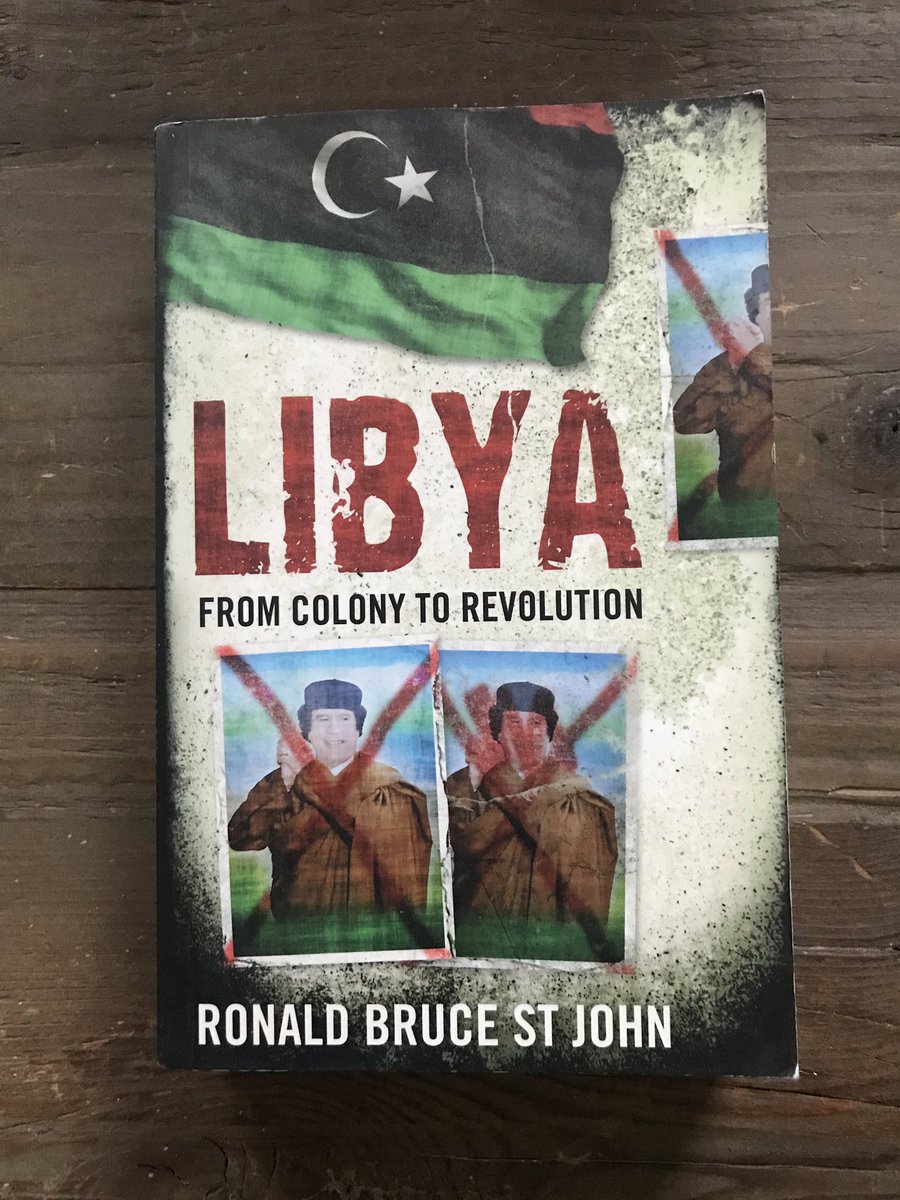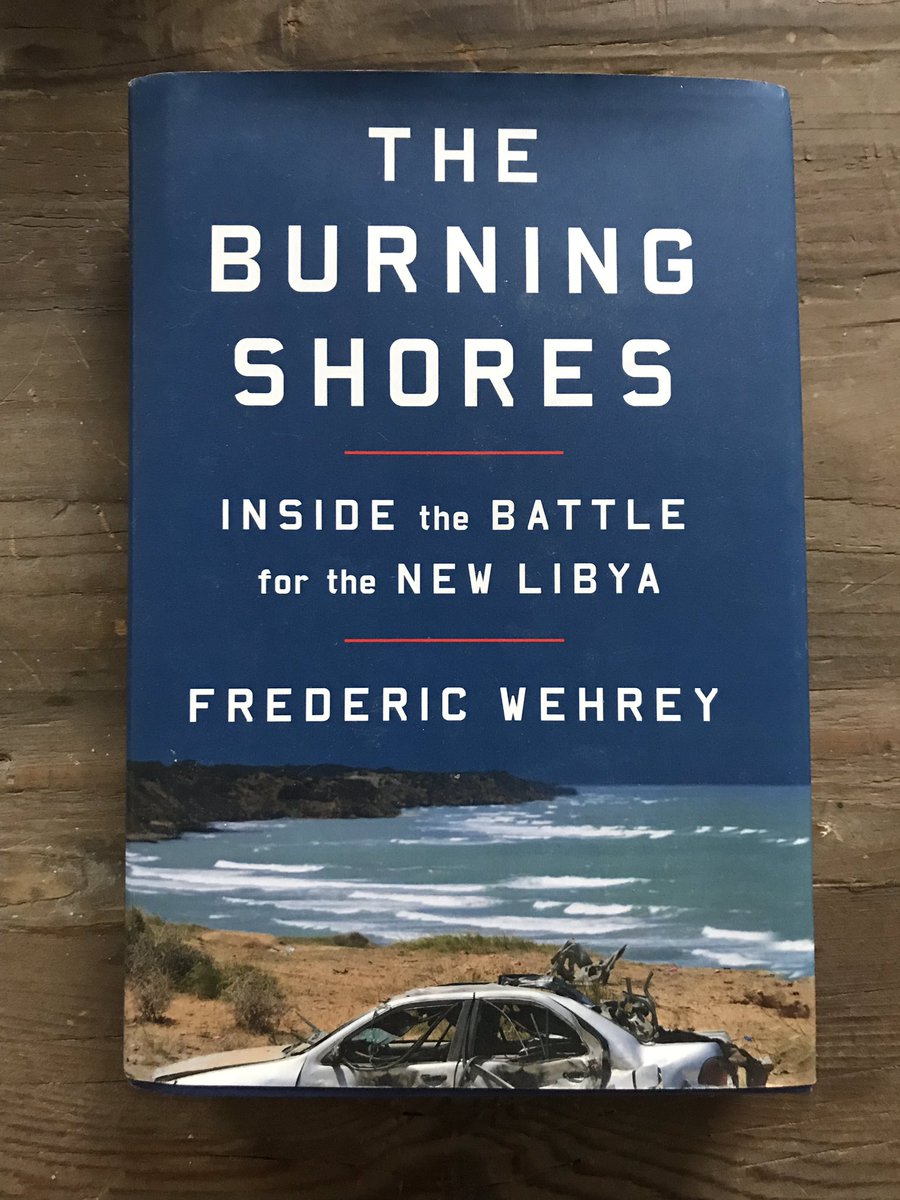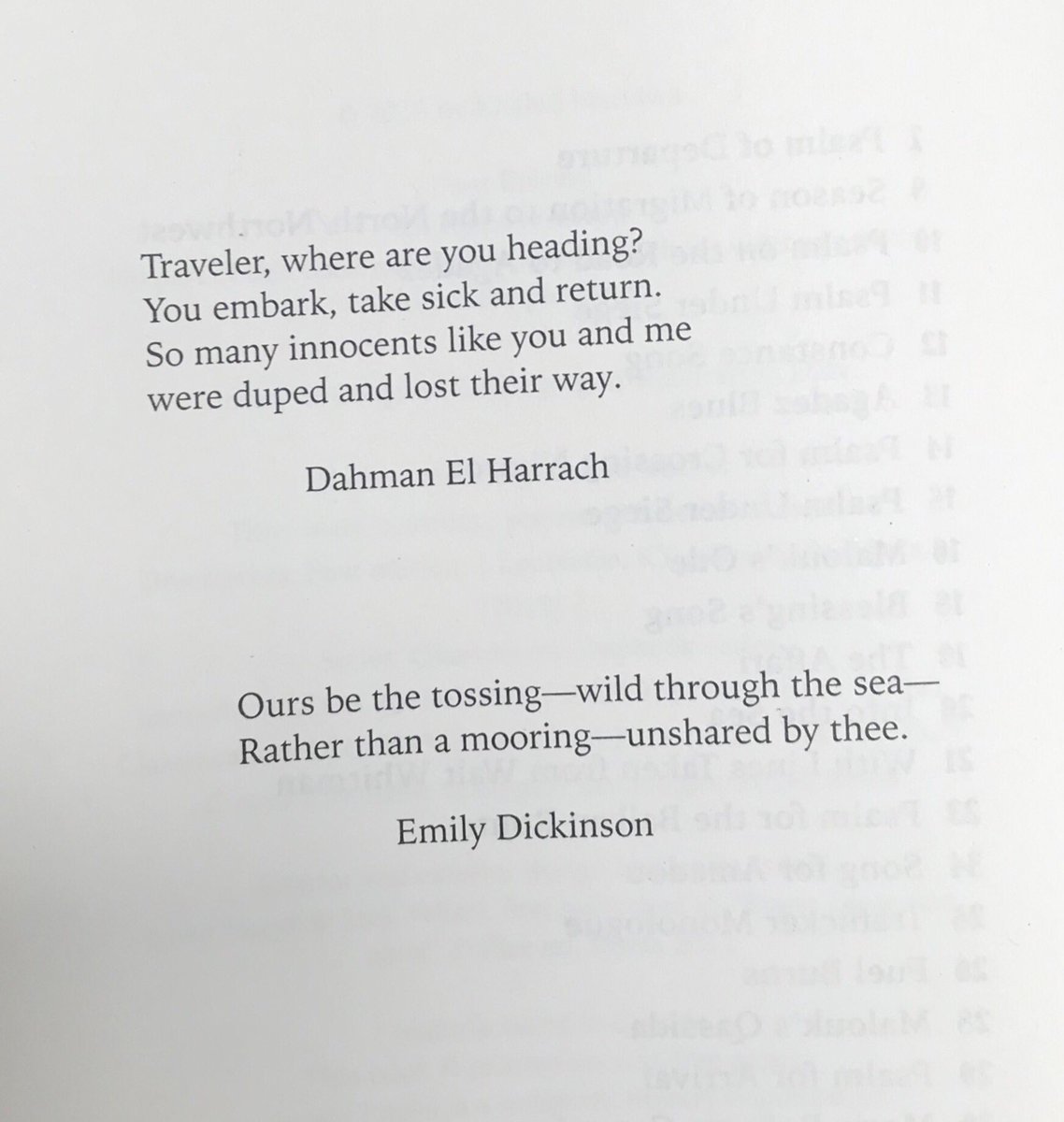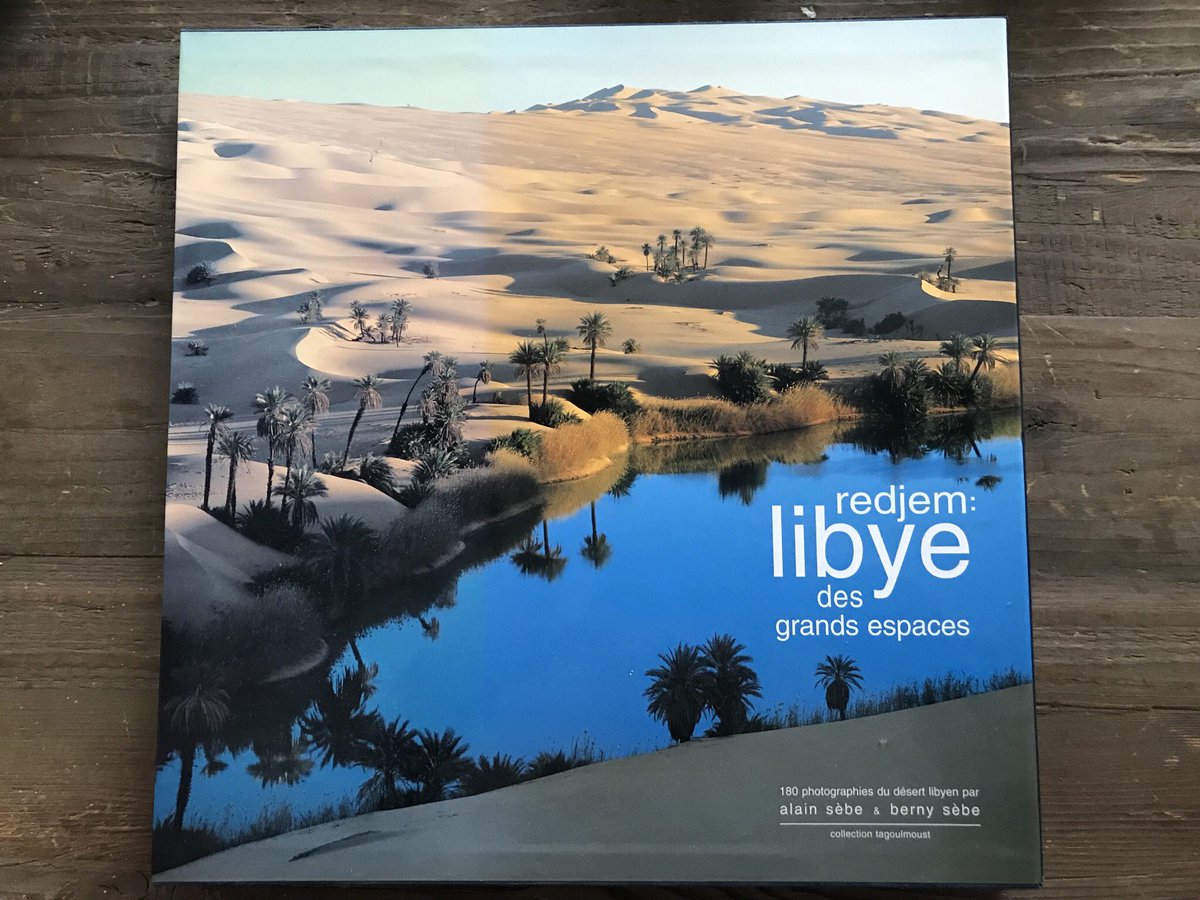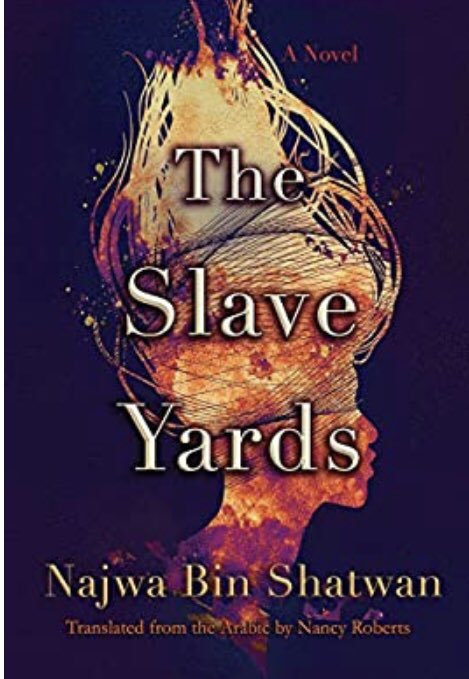Everyone has more time to read at the moment so in that spirit, I will spend this week tweeting some of my favourite books on #Libya from my own library. This  https://abs.twimg.com/emoji/v2/... draggable="false" alt="👇" title="Down pointing backhand index" aria-label="Emoji: Down pointing backhand index"> is not my library but the rather meagre Libya section at Daunt in London, one of my favourite bookshops anywhere.
https://abs.twimg.com/emoji/v2/... draggable="false" alt="👇" title="Down pointing backhand index" aria-label="Emoji: Down pointing backhand index"> is not my library but the rather meagre Libya section at Daunt in London, one of my favourite bookshops anywhere.
A very good place to start is with this volume by the distinguished Libyan scholar Ali Abdullatif Ahmida.
I was given this as a gift recently and it makes for a fascinating read. Libya (or at least western Libya/Tripolitania) as seen through British military eyes in 1947.
The brutal Italian colonial occupation of #Libya is documented in several academic volumes but this novel by Libyan author Ali Hussein focuses on the al-Agaila concentration camp the Italians built in eastern Libya, one of several they constructed during the colonial period.
Libya was home to a Jewish population since Phoenician times and once constituted one of the largest Jewish communities in North Africa. Most now live in Israel and Italy. This volume tells some of that history with chapters including one titled ‘Growing Up Jewish in Benghazi’
This sumptuously illustrated volume from Libya’s @DarfPublishers is packed with photographs from the colonial period and tourism posters from a time when #Libya was sold as a tourist destination in fascist-era Italy.
This was a good companion when I lived in Tripoli, as was a battered copy of the 2007 Lonely Planet guide to Libya I picked up during the 2011 uprising. The few Libya travel guides that existed pre-2011 tended to be thin (LP had 272 pages) due to restricted access under Gaddafi.
Antoine de Saint-Exupéry’s The Little Prince - long a favorite of mine - was partly inspired by his plane crash in the Libya desert in 1935. He recounts the tale in this memoir, Wind, Sand and Stars. On the right is an excerpt where he praises the Libyans who came to his rescue.
Alberto Denti was an Italian doctor who worked in #Libya during the colonial era & was governor of Tripoli 1941-43. This memoir focuses on the Libyans he met as a doctor. It ends with his arrest by British forces (after he handed over control of Tripoli). Final page below right.
This novel by Kamal Ben Hameda, a jazz musician & author from Tripoli, is a fascinating portrait of Tripolitanian lives in the pre-Gaddafi 1960s.
Libyan writer Hisham Matar praised it for ‘its lack of sentimentality about this much-mythologized chapter of modern Libya’
Libyan writer Hisham Matar praised it for ‘its lack of sentimentality about this much-mythologized chapter of modern Libya’
My 3 editions of Gaddafi’s Green Book - the ideological underpinning of his regime - found in #Libya during 2011 uprising. The charred copy is from a bonfire in Benghazi in Feb 2011. People had flocked from across the city to toss their own copies of the Green Book on the blaze.
The collected works of legendary Libyan cartoonist Mohammed Alzwawi. He died in June 2011.
Alzwawi’s work captured much of the political & social dynamics of modern Libya.
Years ago, a Libyan friend told me one cannot understand Libya without knowing Alzwawi’s work.
Alzwawi’s work captured much of the political & social dynamics of modern Libya.
Years ago, a Libyan friend told me one cannot understand Libya without knowing Alzwawi’s work.
Several of Libyan writer Ibrahim Koni’s novels have been translated into English. This tale of Ukhayyad & his camel is typical of Koni’s lyrical style. From a Tuareg background in southern Libya, Koni advised his translator Elliott Colla to see “[my] desert as Melville’s sea...”
Many, incl intellectuals & writers, were jailed for dissent during the Gaddafi era. The Abu Salim prison was infamous. Several subsequently wrote about their prison experience, often in allegorical ways. This  https://abs.twimg.com/emoji/v2/... draggable="false" alt="👇" title="Down pointing backhand index" aria-label="Emoji: Down pointing backhand index"> contains powerful stories by Libya’s Ahmed Alfaitouri & Giuma Bukleb
https://abs.twimg.com/emoji/v2/... draggable="false" alt="👇" title="Down pointing backhand index" aria-label="Emoji: Down pointing backhand index"> contains powerful stories by Libya’s Ahmed Alfaitouri & Giuma Bukleb
Mansour Bushnaf was one of the many Libyan writers & intellectuals jailed in the 1970s. He spent over a decade in prison. His novella Chewing Gum, a mischievous satire on dictatorship, was published in 2008 but banned in Libya. Now translated into English by @DarfPublishers
Hisham Matar’s 2006 Booker Prize shortlisted debut novel helped shape my idea of Tripoli before I first set foot there. It explores the troubled life of a dissident & his family through the eyes of his son Suleiman, the 9-year old narrator. The leitmotif of light is unforgettable
Before 2011, Anglophone Libya studies were dominated by a handful of names, among them Pargeter & Bruce St John below. These two volumes are accessible historical overviews, as is Dirk Vandewalle’s History of Modern Libya (missing here because I lent my copy to a friend recently)
There’s a glut of poor/awful books on Libya’s 2011 uprising. Many of them written from afar with an ideological axe to grind. In my view, these are the best eye-witness accounts:
Tripoli Witness by BBC’s @Rana_J01
Sandstorm by @lindseyhilsum
Col Gaddafi’s Hat @AlexCrawfordSky
Tripoli Witness by BBC’s @Rana_J01
Sandstorm by @lindseyhilsum
Col Gaddafi’s Hat @AlexCrawfordSky
In early 2015, a team of us Libya specialists published this book driven by the belief that a granular account of what happened in 2011 was needed. Many of today’s enmities & rivalries can be traced back to the period covered here, hence it remains a reference for diplomats etc.
Ahmed Fagih, one of the Grand Old Men of Libyan literature, was much mourned when he died last year. This novel is set in his birthplace of Mizda in western Libya’s Nafussa mountains. Its often fantastical plot hinges on the impact of a severe drought in the years after WWII.
Here’s the Pulitzer citation for Hisham Matar’s memoir: “A first-person elegy for home and father that examines with controlled emotion the past and present of an embattled region.”
I know some Libyans who cried while reading it. Others would like to see it on a future curriculum
I know some Libyans who cried while reading it. Others would like to see it on a future curriculum
This is what I recommend when people ask me for a primer on past almost decade in Libya. Clear-eyed, accessible account of what went wrong post-Gaddafi. @FWehrey is one of the New Wave of Libya scholars who’ve spent extended periods of time on the ground since 2011. That matters.
This 2019 volume sees one of Libya’s most distinguished poets Khaled Mattawa engaging with the migration question.
It’s a beauty.
Compelling poetry (including the use of traditional ‘allams) prefaced by Emily Dickinson juxtaposed with lines from the old Algerian song Ya Rayah.
It’s a beauty.
Compelling poetry (including the use of traditional ‘allams) prefaced by Emily Dickinson juxtaposed with lines from the old Algerian song Ya Rayah.
Valuable recent volume by @W_Lacher, a leading Libya scholar who has done seminal work on post-Gaddafi Libya. Melding extensive field research with theory, the book tackles more than a few canards & offers fresh insights into how & why Libya has fragmented. Catnip for Libya nerds
Beyond the headlines, Libya is an extraordinarily beautiful country.
The lush mountains and valleys of Jebel al-Akhdar in the east, the long Mediterranean coastline and the desert of the south.
French photographer Alain Sèbe captures Libya’s Saharan belt in this gorgeous book.
The lush mountains and valleys of Jebel al-Akhdar in the east, the long Mediterranean coastline and the desert of the south.
French photographer Alain Sèbe captures Libya’s Saharan belt in this gorgeous book.
Two forthcoming titles I’m looking forward to adding to my Libya library.
Benghazi writer @binshatwan’s Arabic Booker shortlisted novel about slavery in 19th century Libya.
Reuters’ veteran @UlfLaessing’s account of what it has been like to report Libya for almost a decade.
Benghazi writer @binshatwan’s Arabic Booker shortlisted novel about slavery in 19th century Libya.
Reuters’ veteran @UlfLaessing’s account of what it has been like to report Libya for almost a decade.
Next year is the 10th anniversary of the uprising that ended Gaddafi’s 42-year rule. I would love to see more books written by Libyans on the events of 2011 and since.
So few exist.
Memories fade and important histories - both collective and personal - risk being lost forever.
So few exist.
Memories fade and important histories - both collective and personal - risk being lost forever.
To end, a tribute to Libya’s longest running bookstore & publishing house: Dar el Fergiani. I lived close to the original in downtown Tripoli. @FergianiBooks & sister @DarfPublishers have kept a light on for so many Libyan writers during difficult times past & present.
Shukran.
Shukran.

 Read on Twitter
Read on Twitter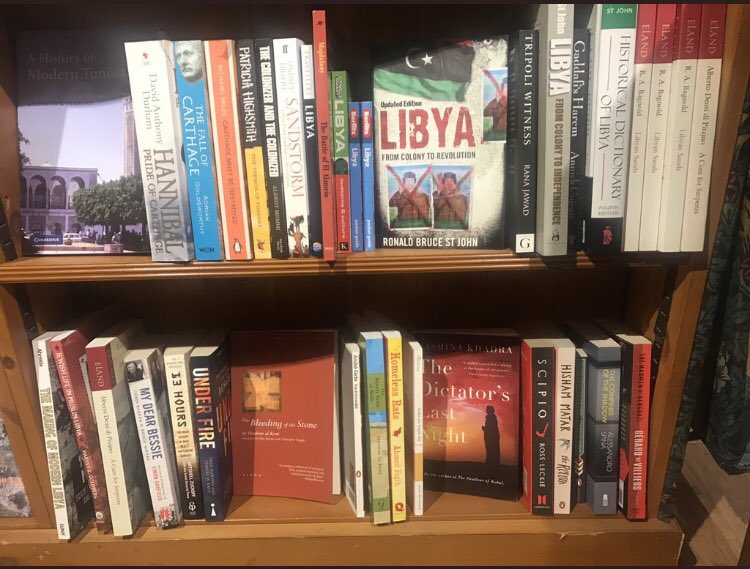 is not my library but the rather meagre Libya section at Daunt in London, one of my favourite bookshops anywhere." title="Everyone has more time to read at the moment so in that spirit, I will spend this week tweeting some of my favourite books on #Libya from my own library. This https://abs.twimg.com/emoji/v2/... draggable="false" alt="👇" title="Down pointing backhand index" aria-label="Emoji: Down pointing backhand index"> is not my library but the rather meagre Libya section at Daunt in London, one of my favourite bookshops anywhere." class="img-responsive" style="max-width:100%;"/>
is not my library but the rather meagre Libya section at Daunt in London, one of my favourite bookshops anywhere." title="Everyone has more time to read at the moment so in that spirit, I will spend this week tweeting some of my favourite books on #Libya from my own library. This https://abs.twimg.com/emoji/v2/... draggable="false" alt="👇" title="Down pointing backhand index" aria-label="Emoji: Down pointing backhand index"> is not my library but the rather meagre Libya section at Daunt in London, one of my favourite bookshops anywhere." class="img-responsive" style="max-width:100%;"/>
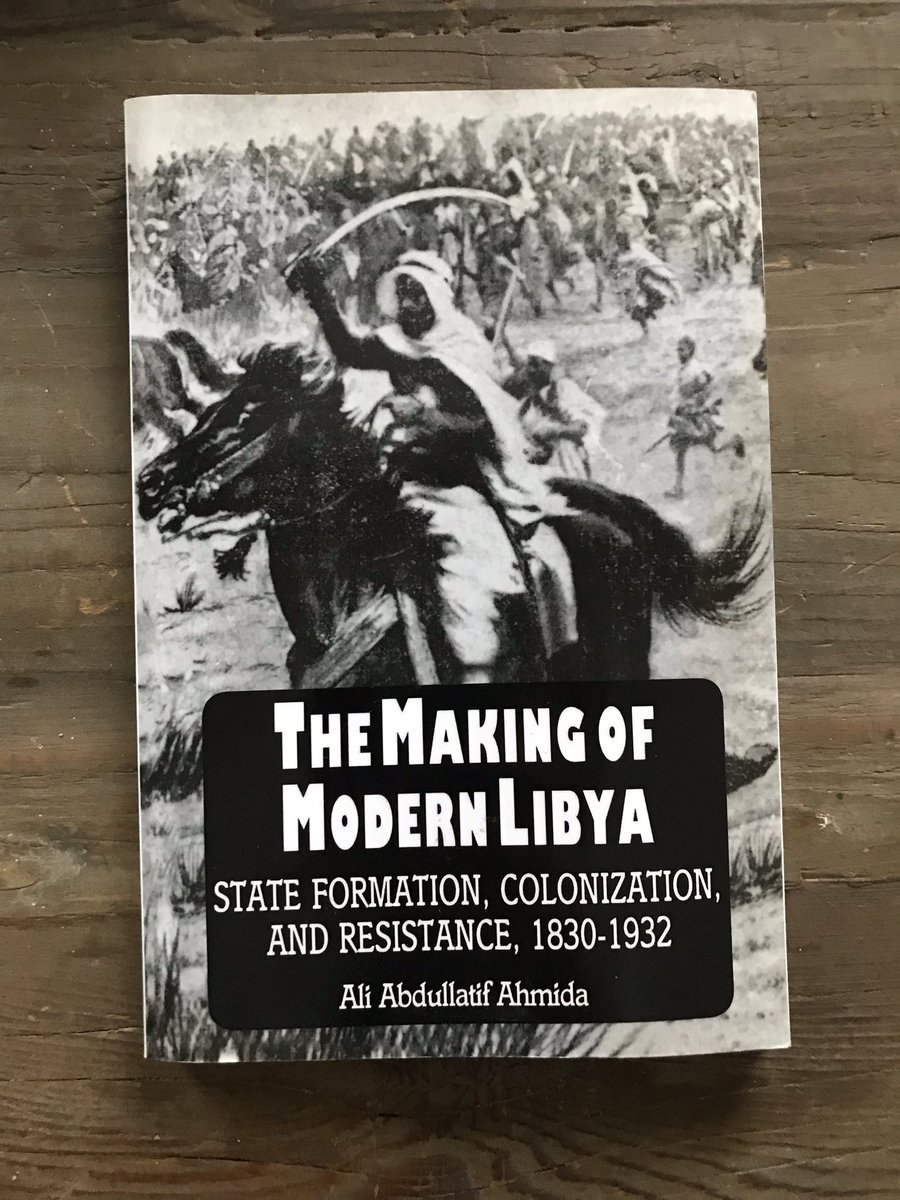

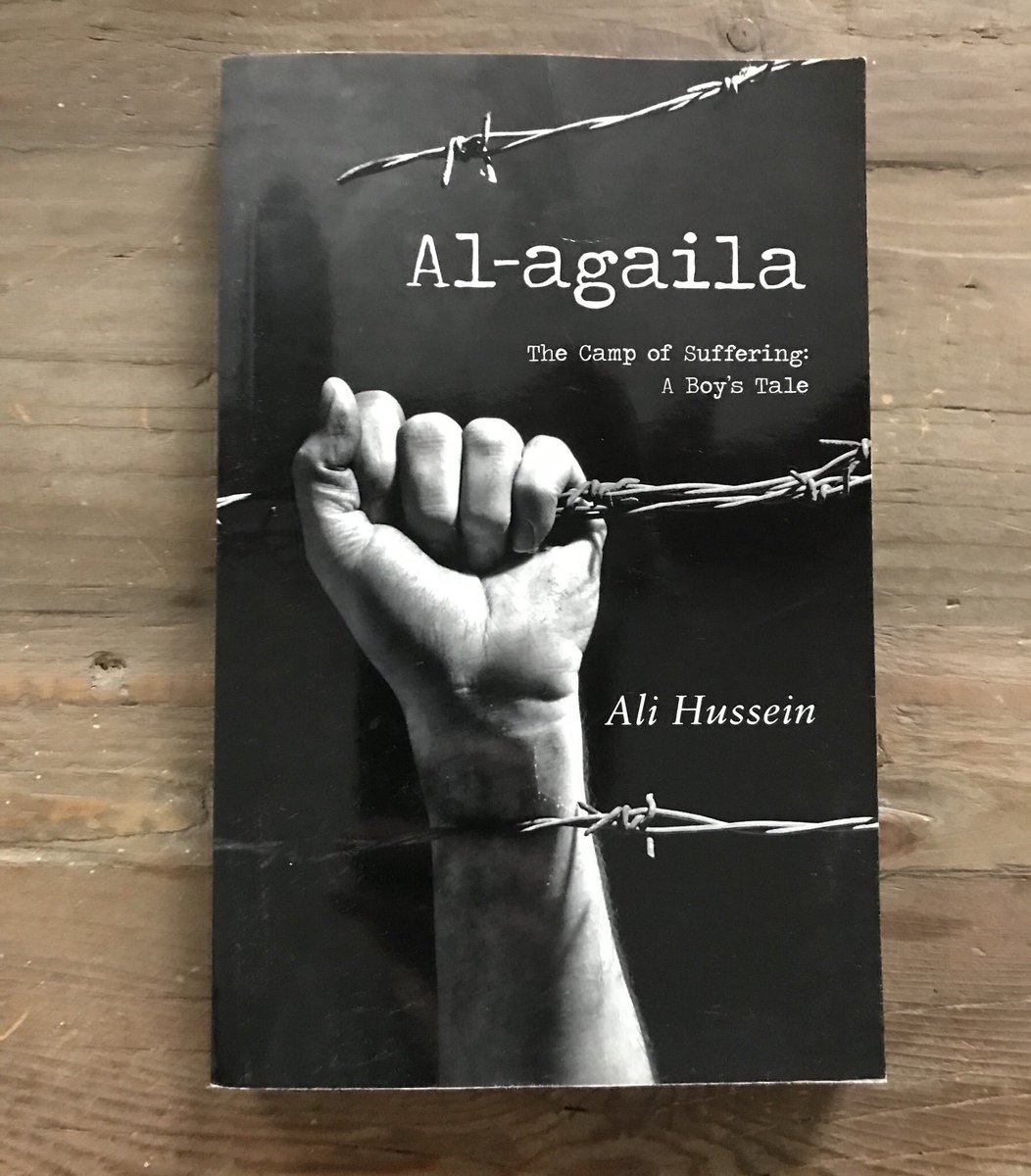
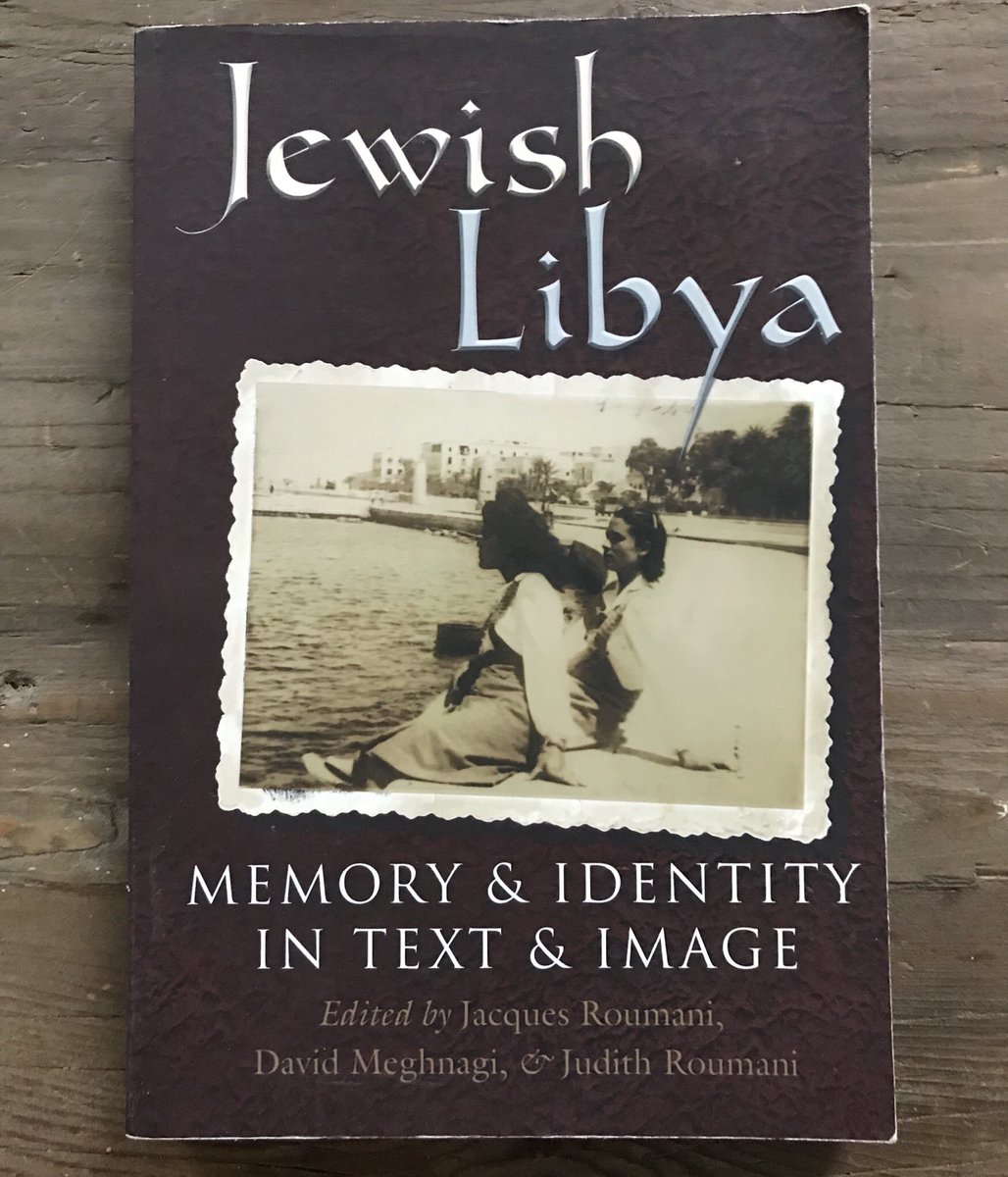
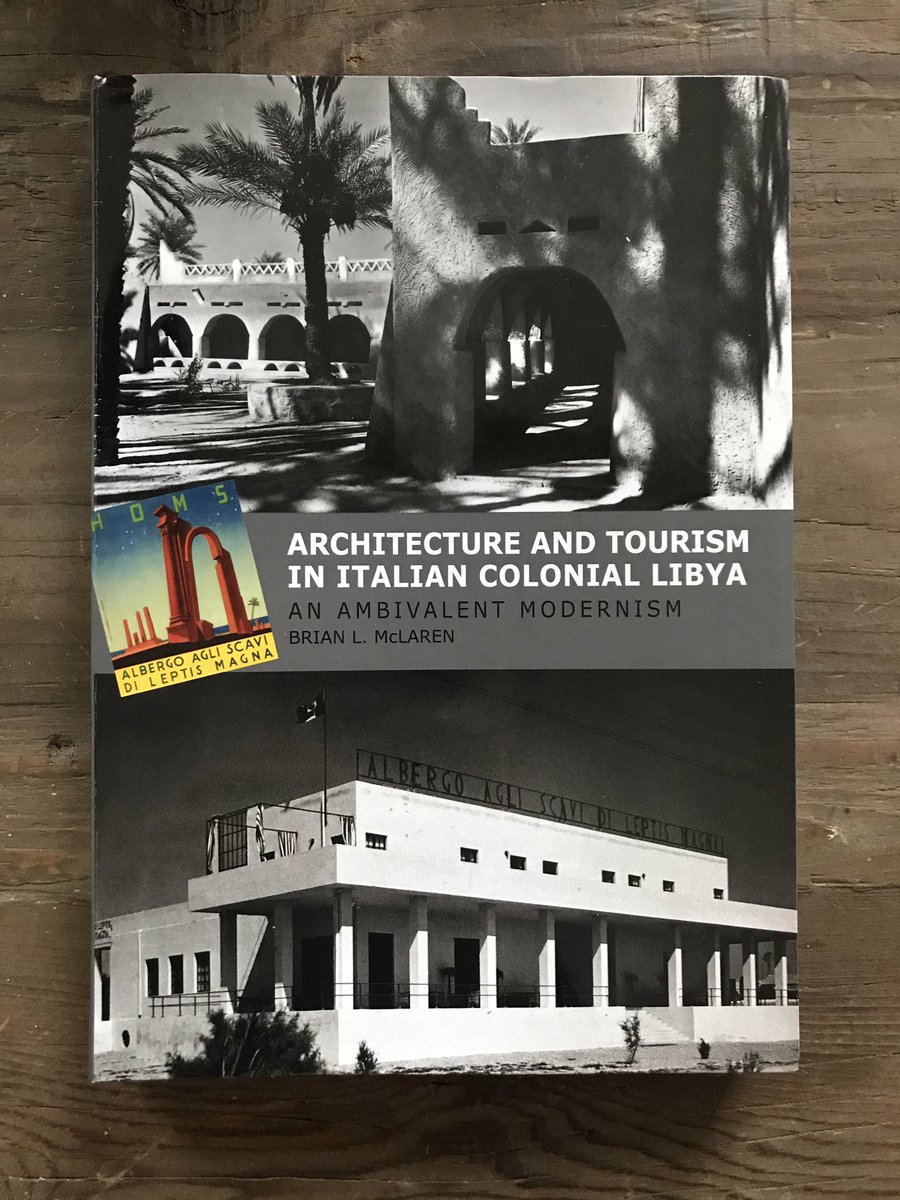
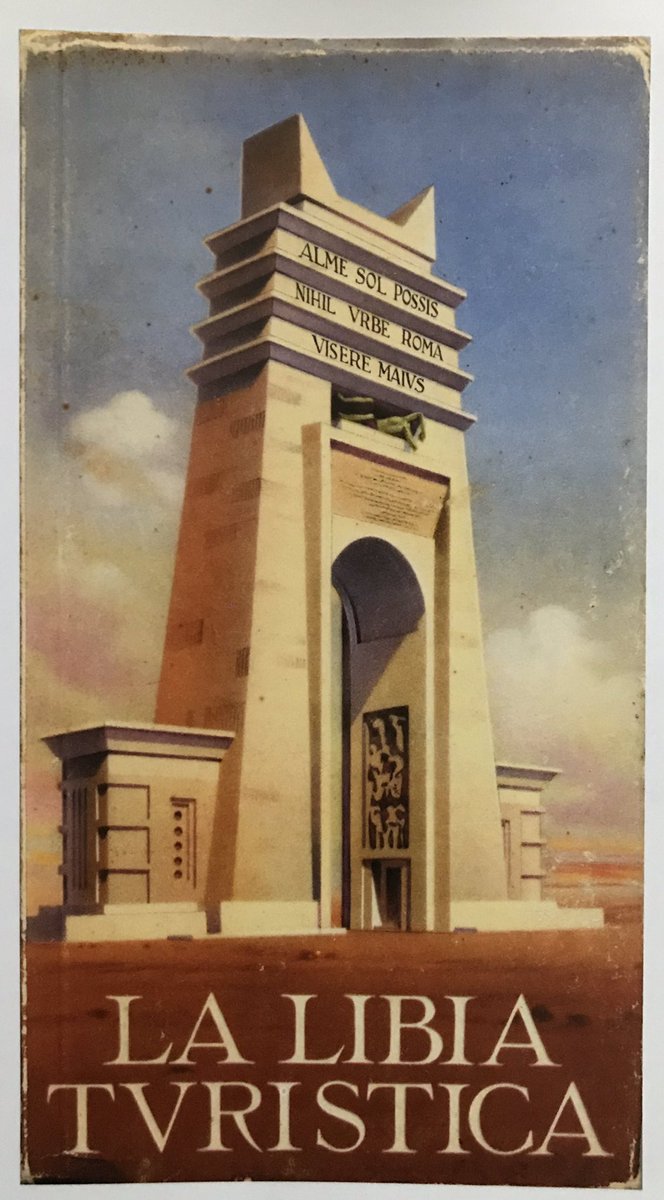



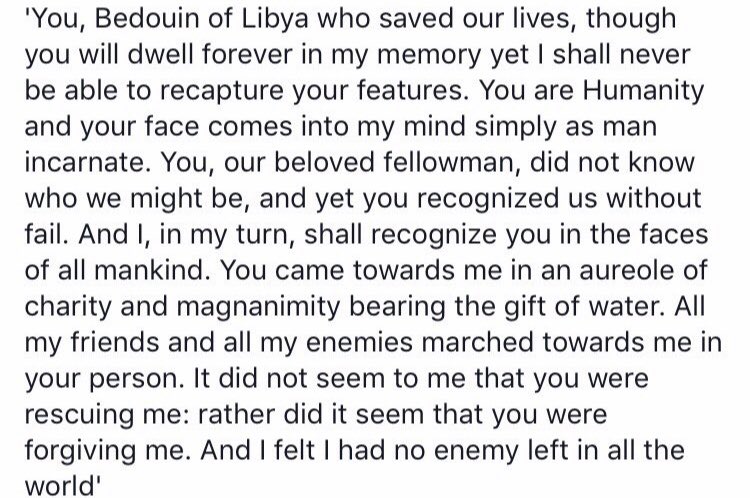

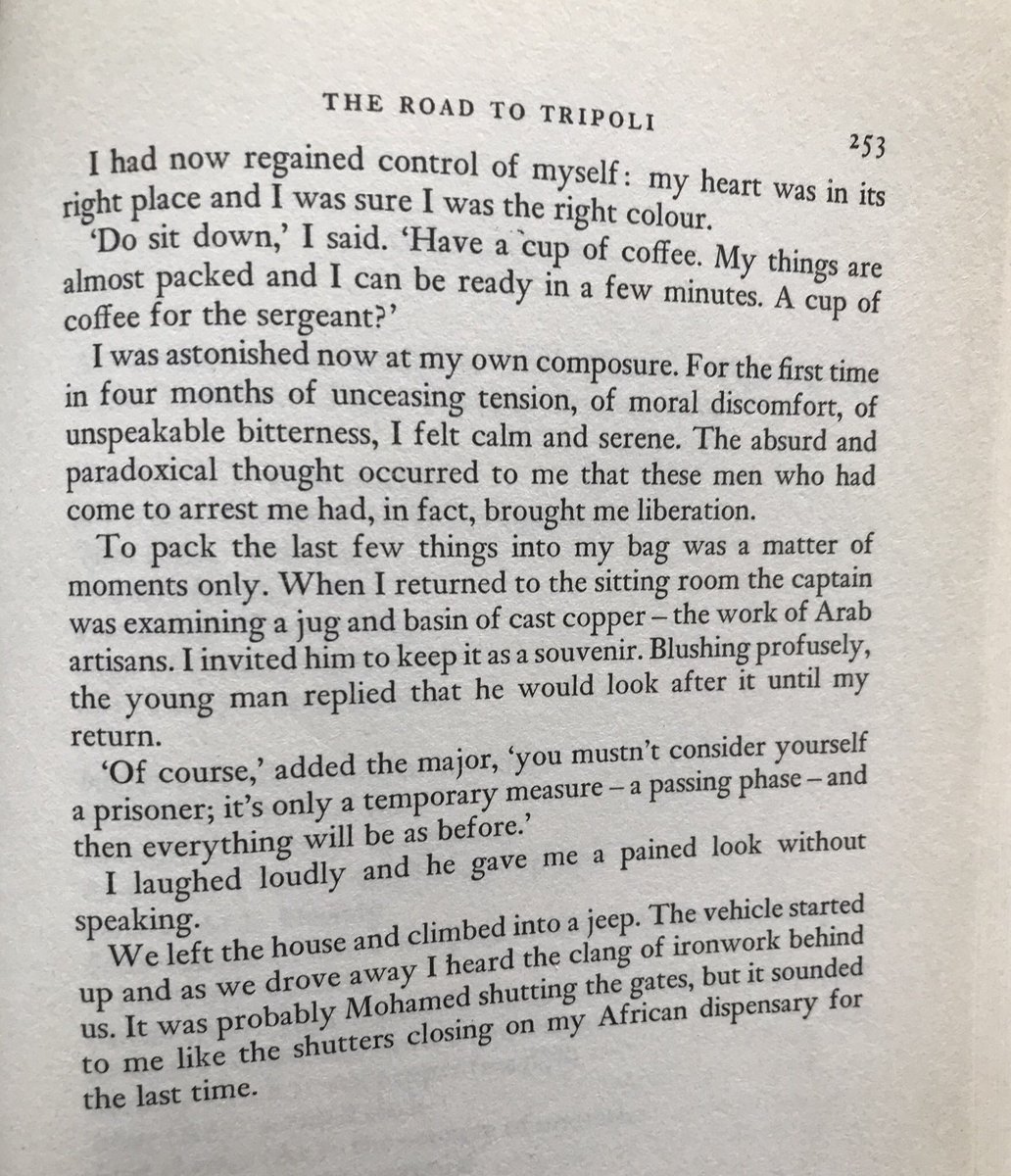
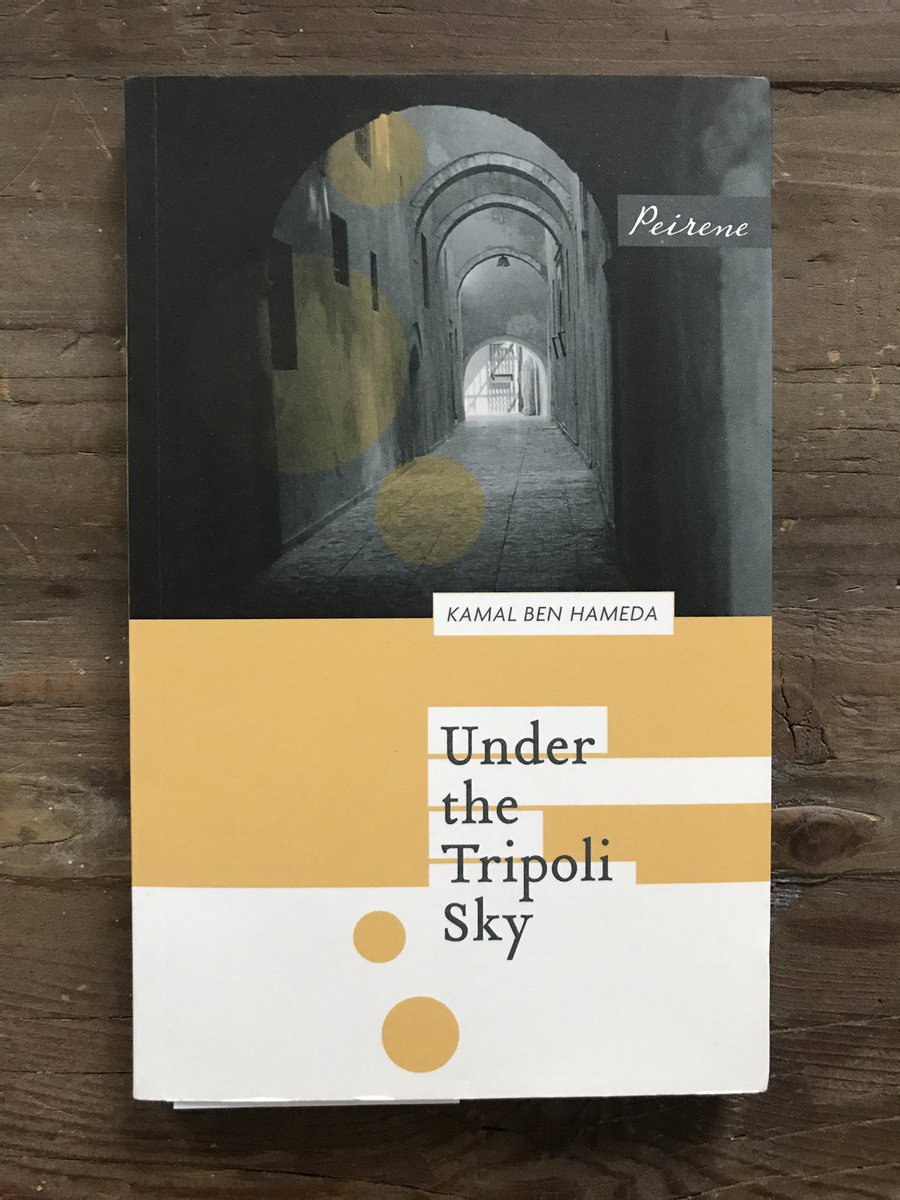
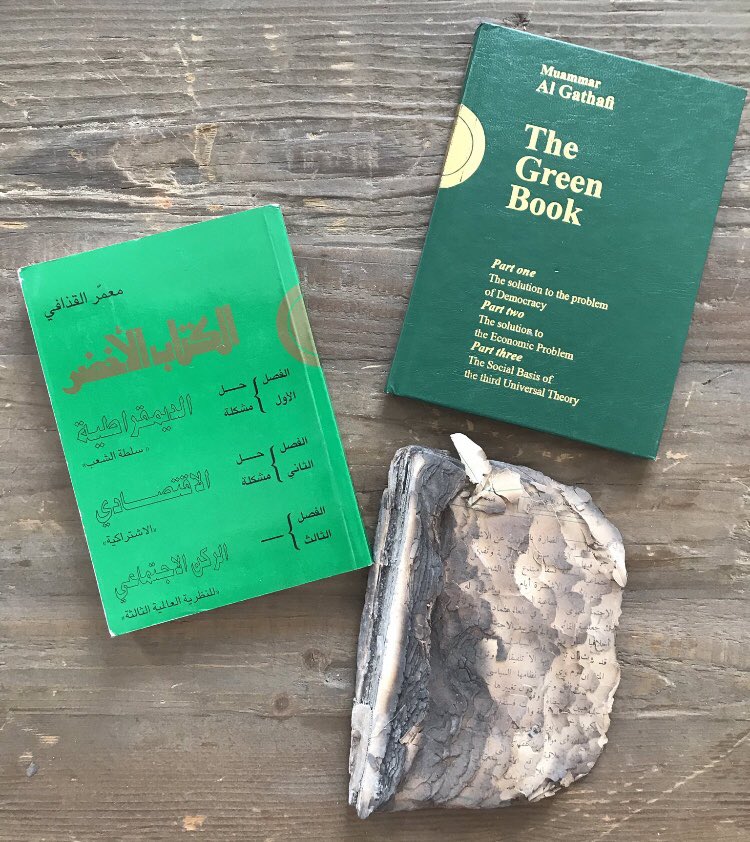
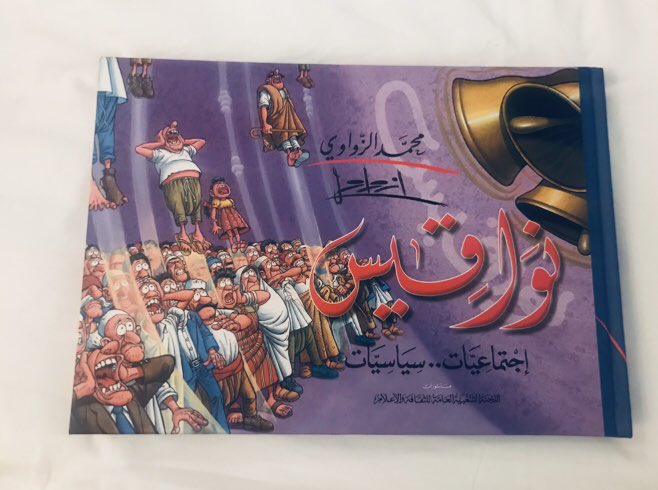
![Several of Libyan writer Ibrahim Koni’s novels have been translated into English. This tale of Ukhayyad & his camel is typical of Koni’s lyrical style. From a Tuareg background in southern Libya, Koni advised his translator Elliott Colla to see “[my] desert as Melville’s sea...” Several of Libyan writer Ibrahim Koni’s novels have been translated into English. This tale of Ukhayyad & his camel is typical of Koni’s lyrical style. From a Tuareg background in southern Libya, Koni advised his translator Elliott Colla to see “[my] desert as Melville’s sea...”](https://pbs.twimg.com/media/EUXNIKdWkAcCJ7l.jpg)
 contains powerful stories by Libya’s Ahmed Alfaitouri & Giuma Bukleb" title="Many, incl intellectuals & writers, were jailed for dissent during the Gaddafi era. The Abu Salim prison was infamous. Several subsequently wrote about their prison experience, often in allegorical ways. This https://abs.twimg.com/emoji/v2/... draggable="false" alt="👇" title="Down pointing backhand index" aria-label="Emoji: Down pointing backhand index"> contains powerful stories by Libya’s Ahmed Alfaitouri & Giuma Bukleb" class="img-responsive" style="max-width:100%;"/>
contains powerful stories by Libya’s Ahmed Alfaitouri & Giuma Bukleb" title="Many, incl intellectuals & writers, were jailed for dissent during the Gaddafi era. The Abu Salim prison was infamous. Several subsequently wrote about their prison experience, often in allegorical ways. This https://abs.twimg.com/emoji/v2/... draggable="false" alt="👇" title="Down pointing backhand index" aria-label="Emoji: Down pointing backhand index"> contains powerful stories by Libya’s Ahmed Alfaitouri & Giuma Bukleb" class="img-responsive" style="max-width:100%;"/>

